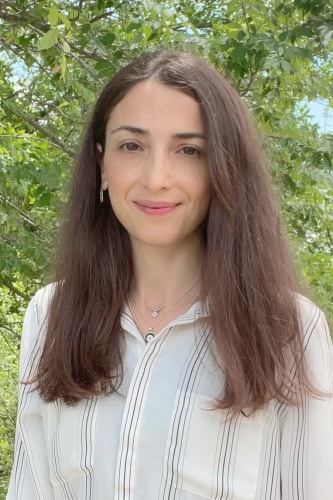
Leyla Tiglay
Biography
Leyla Tiglay received her Ph.D. in History from The Ohio State University in 2024. She also holds an M.A. in Political Science from Boston University, and an M.A. in International Studies from the University of London’s School of Oriental and African Studies.
Her research has been supported by numerous fellowships and institutions. She was an Ernest May Fellow at Harvard University’s Kennedy School, Belfer Center for Science and International Affairs and has also received predoctoral fellowships from the United States Institute of Peace (USIP) and the Bush School of Government’s Center for Grand Strategy. Currently an affiliate at the Mershon Center, her work has also been supported by the Clements Center for National Security, the Wilson Center’s Nuclear Proliferation International History Project, and Duke University’s Triangle Institute for Security Studies.
Before beginning her doctoral studies, Leyla studied and worked internationally in Türkiye, Belgium, Cameroon, and the United Kingdom.
Research
Leyla’s research examines the intersections of decolonization, nuclear politics, and global security in the early Cold War. Her dissertation explores how major decolonization crises shaped the emerging international nuclear regime by focusing on the nexus of African independence movements, France’s nuclear tests in the Sahara, and anti-nuclear activism during the late 1950s. Set against the backdrop of Great Power diplomacy, including the Geneva and Test Ban negotiations, her work highlights the overlooked role of African actors and transnational networks in shaping nuclear history.
Her current book project, Radiant Legacies: Decolonization and the Global Politics of Nuclear Testing, expands this focus to show how French nuclear tests became flashpoints for debates over sovereignty, technological risk, and international order. Drawing on archives from Africa, Europe, and the United States, her research situates nuclear politics within transnational history and emphasizes interconnected histories of decolonization, technology, and global security.
Publications
“Nuclear Testing, Media Wars, and Anticolonial Politics in Cold War Africa,” Journal of Applied History [Accepted In September 2025]
“From Colonialism to the Nuclear Age: Nuclear Tests in the Sahara and Lessons for Today.” Medicine, Conflict and Survival, September (2025) 1–14.
“Hierarchy and War.” with Van Beek, Mael, M. Z. Lopate, Andrew Goodhart, D. A. Peterson, J. Edgerton, H. Xiong, D. Kent, M. Alam, and Bear F. Braumoeller, American Journal of Political Science 69, no. 1 (2025): 299–313.
Teaching
Technological Transformations: A Global Perspective
Causes of War and Peace
Introduction to International Relations